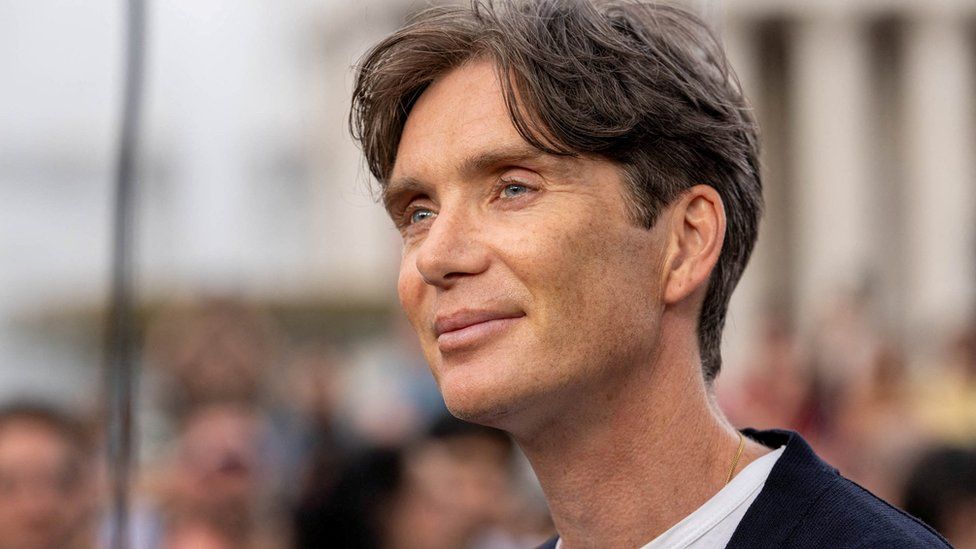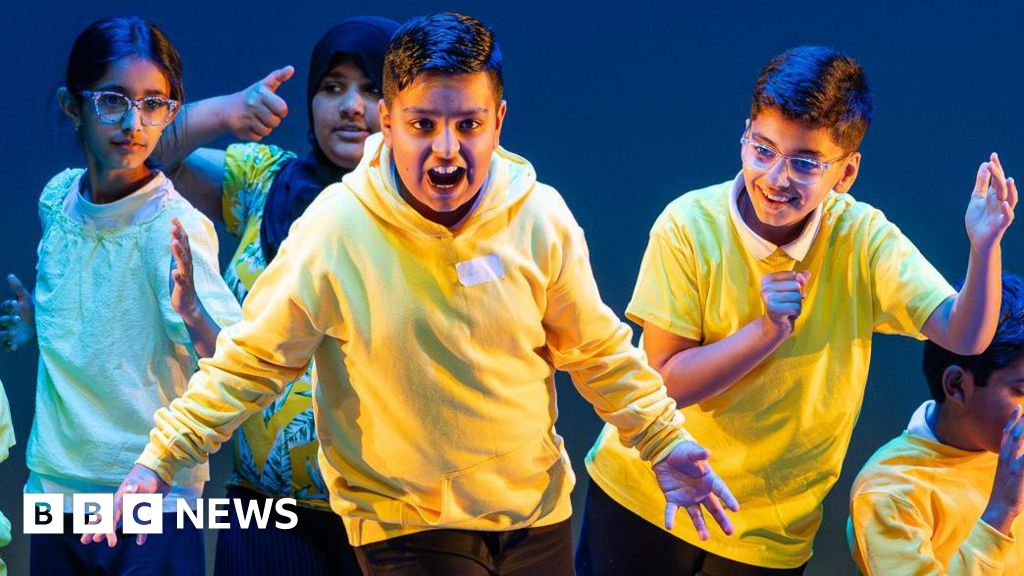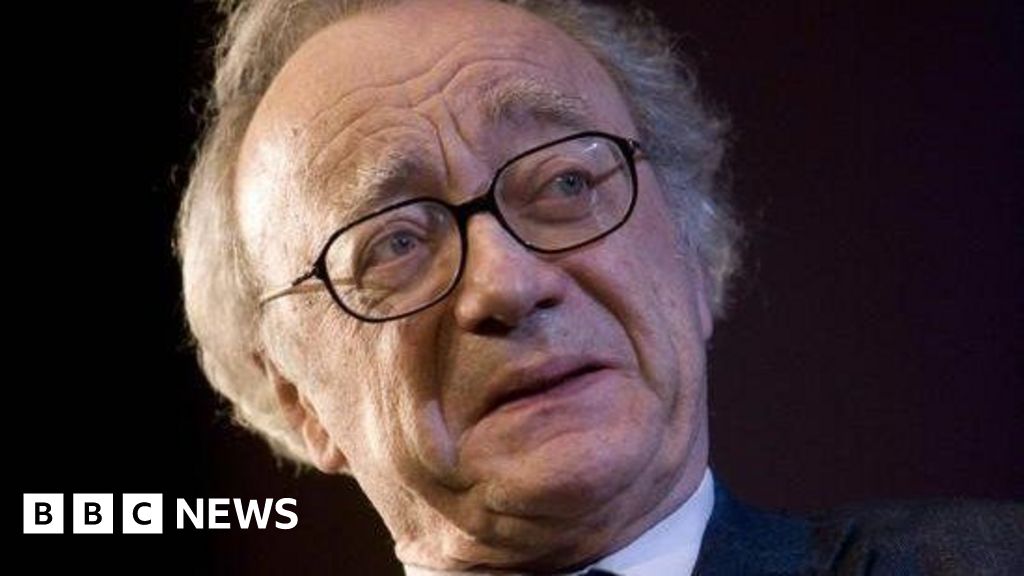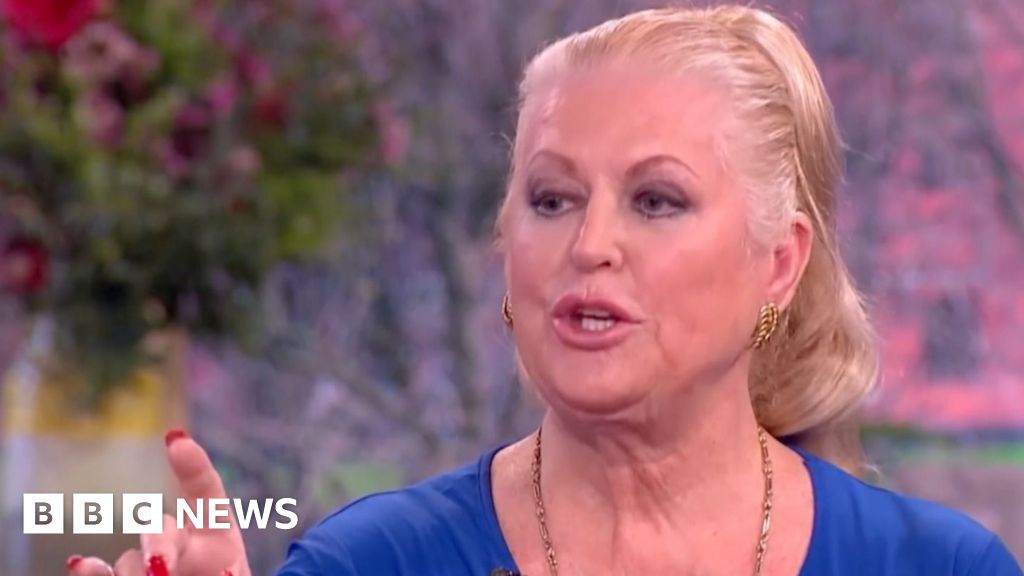ARTICLE AD BOX
 Image source, Reuters
Image source, Reuters
Murphy (pictured) is seen as the co-frontrunner in a hotly contested best actor race, alongside The Holdovers star Paul Giamatti
By Steven McIntosh
Entertainment reporter
Actor Cillian Murphy has said last summer's Barbenheimer phenomenon was "a wonderful moment for cinema".
The viral trend saw thousands of fans book tickets to see both Barbie and Oppenheimer on the same day.
It came about after a string of memes which made light of the fact that two films which were so tonally different shared the same release date.
Murphy praised the organic nature of the trend, adding it "wasn't any amazingly designed marketing strategy".
Asked by the BBC's culture and media editor Katie Razzall if the two films helped each other at the box office, Murphy said: "Yeah, they did. And it was a great moment for cinema.
"I think they're both great films which couldn't be more different. And I think it was wonderful it wasn't any amazingly designed marketing strategy by the studio.
"It was people, you know, it was the internet and people who made up this Barbenheimer thing and it, yeah, it was a wonderful moment for cinema."
Barbie has taken $1.44bn (£1.14) at the box office worldwide, while Oppenheimer has made $956m (£759m).
Both films are nominated for best picture at the Oscars on 10 March, but Murphy explained he tries not to let awards buzz affect his performances.
"I know everyone says this, but you never go into making a film thinking about awards," he said. "That's not what we do. It's impossible to make a film that way.
"But, when a film connects with audiences like this particular one has in a way that none of us could have anticipated... it's hugely flattering and hugely humbling and it's lovely to see that."
Murphy is seen as the co-frontrunner in the lead actor category alongside Paul Giamatti of The Holdovers, but he says he doesn't spend much time worrying about the outcome.
"I genuinely don't think about that," he said. "It's kind of wasted energy. I just feel so thrilled and humbled to be [mentioned] in the same breath as all those wonderful actors."
Image source, Universal Pictures
Image caption,Murphy's co-stars in Oppenheimer include Florence Pugh, who plays psychiatrist Jean Tatlock
Born in the suburbs of Cork, Ireland in 1976, Murphy's interest in acting developed in secondary school after he took part in a drama module.
But he actually pursued music as a career first - Murphy played guitar alongside his brother Páidi in a string of rock bands in his late teens and early 20s.
He also studied law at University College Cork, but failed his first year exams because his heart had increasingly become set on acting. His professional debut came with a theatre performance in 1996.
Film roles followed over the next decade, as Murphy was cast as a supporting character in movies such as Cold Mountain, 28 Days Later and Girl with a Pearl Earring.
"There isn't a genre or a medium the actor has shied away from over the years," wrote Variety's Jenelle Riley.
"And while some films might not always work as a whole, Murphy always shines. He's also a true actor's actor, one who understands every role is integral and is comfortable taking on supporting parts."
One particular role proved key to his career - with Murphy's appearance in 2005's Batman Begins marking his first collaboration with Memento, Interstellar and Tenet director Christopher Nolan.
Murphy had been asked to audition for the lead role in the first film of the Batman trilogy, and although he did not see himself as being the right fit, the actor jumped at the chance to work with Nolan. His instincts were right, and he was instead cast as Dr Crane, whose alter-ego is the villainous Scarecrow.
Over the following years, Murphy's profile grew steadily with a stream of roles on stage and screen, including Nolan's Inception and Dunkirk. The pair have now worked together on six films.
"It's a 20-year relationship," Murphy said, "and we met when we were much younger and we were kind of starting out in the business. He was a lot further ahead than I was.
"I have a huge respect for him, I've always loved the types of films that he makes. There's all sorts of films that I go to the cinema to see. But we've developed over the years. And above all, the most important thing, I think, is trust. I really like being pushed as an actor, and he really, really pushes me, in the best way possible."
Murphy's breakthrough came when he was cast as Tommy Shelby in BBC drama Peaky Blinders
But although Murphy's film career was going from strength to strength, it was a BBC drama series about a Birmingham street gang in the early 20th Century which provided his real breakthrough.
The actor's role as Tommy Shelby in Peaky Blinders, created and written by Steven Knight, elevated him to a new level of fame.
The show had a healthy audience when it was first broadcast in the UK, but its popularity grew significantly over the following years as it was sold overseas and audiences caught up on streaming platforms.
Murphy's performance was described as "spectacular", winning him two Irish Film & Television Awards for best actor while the show itself won both a Bafta and National Television Award for best drama.
Over the decade that Peaky Blinders aired, Murphy continued to star in films such as A Quiet Place Part II.
And as the drama series was drawing to a close, Murphy was cast in the role that would define his career - theoretical physicist J Robert Oppenheimer.
The resulting film, Oppenheimer, was released last July, accidentally sparking the Barbenheimer trend which greatly benefitted both films at the box office.
But although Barbie made more money, it's Oppenheimer which is seen as the current frontrunner to win best picture - hitting the Academy Awards' sweet spot where artistic merit overlaps with commercial success.
Although the early part of the film focuses on the creation and development of the atomic bomb, the last hour sees Oppenheimer grappling with what he's done, as he comes to terms with the many lives lost as a result of his work. It is a wide-ranging performance in a wide-ranging film.
Image source, Getty Images
Image caption,Murphy has already won a Golden Globe for his performance and is also nominated for a Screen Actors Guild and Bafta award
"This is actually a very human story," Murphy told Razzall. "And if you think about the sort of dilemmas they were wrestling with at the time, they are the biggest, most profound, most paradoxical, most important kind of moral dilemmas that we're still wrestling with as a race and as the world.
"I feel that when you present those in a hugely entertaining way, his [Nolan's] movies become like events. And there's no one else that does it like that.
"And then for some reason, it just clicked and people started going, this momentum, and we were all on strike at the time. So we were just sort of texting each other, just watching this thing happen."
The London premiere of Oppenheimer took place on the same day the Hollywood actors' strike began last July.
It meant it was the final promotional event the actors were able to partake in before downing tools on the red carpet and ceasing to work. The strike was finally resolved after 118 days.
Image source, Getty Images
Image caption,Barry Keoghan, Paul Mescal and Kerry Condon are among the Irish actors to have received Oscar nominations
This awards season has once again been a strong one for Irish actors. The release of the Banshees of Inisherin last year led to Oscar nominations for Colin Farrell, Kerry Condon, Brendan Gleeson and Barry Keoghan, while Paul Mescal was nominated for Aftersun.
This year, Keoghan was Golden Globe and Bafta-nominated again for his performance in Saltburn, while All of Us Strangers, starring Mescal and Andrew Scott, received nominations at the Globes, Baftas and British Independent Film Awards.
It suggests something has gone very right in the Irish talent pipeline.
"I think part of it is coincidence, and I think part of it is that Irish people tell stories very well, just in the pub to each other," Murphy reflects. "We're good at it. We have a long history of it.
"We're comfortable with stories, with songs, with poetry. These things are just kind of second nature to us.
"But it is kind of phenomenal the level of talent that the country is producing. For like five million people, it's kind of extraordinary."

 1 year ago
107
1 year ago
107








 English (US) ·
English (US) ·